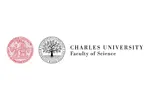

Czech Republic (the)
Visit course webpageAntarctica is Earth's most pristine and geographically isolated continent. While 99% of its terrestrial area is ice-covered, freshwater habitats scatter the ice-free oases near the coast, representing important habitat for Antarctic biodiversity. Currently, rapid climate changes are fundamentally transforming these limno-terrestrial habitats, and at the same time, Antarctic diversity remains critically under-documented due to the majority of it being microbial. Of the microbial eukaryotes, diatoms (single-celled siliceous algae) are likely the most diverse. Diatoms have been widely studied from Antarctica using morphological methods, yet they have been rarely studied using molecular methods (e.g. DNA metabarcoding) despite widespread cryptic diversity within this group. As a result, we are only beginning to get a sense of Antarctic diatom diversity, community assembly, and biogeography. This contrasts strongly with the application of diatoms in biomonitoring and as ecological proxies, and combined with the imminent impacts of climate change makes their study particularly urgent.
Using a combination of new and archived samples, the focus of this doctoral thesis will be to:
1) Compare morphological/molecular diatom diversity from different habitats and regions,
2) Characterize and quantify diatom community assembly processes with DNA metabarcoding, and
3) Synthesize results to project how communities will shift with climate change.
Five relevant publications of the research group:
Koll
Learn more about Diatom diversity and community assembly in the polar oases of Antarctica, PhD - at Faculty of Science, Charles University
Visit course webpageContact Faculty of Science, Charles University to find course entry requirements.
This text facilitates quick navigation of the various types of scholarships but does not provide a full list of rules and policies regulating this field. The granting and payments of scholarships is governed primarily by the Scholarships and Bursaries Rules of Charles University (cuni.cz/UKEN-727.html), the Rules for Granting Scholarships at FSc, and the relevant measures issued by the Dean (natur.cuni.cz/fakulta/studium/bc-nmgr/predpisy-a-poplatky/stipendia; Czech only).
Students may obtain the following scholarships:
Certain scholarships are granted to students automatically (without student applications), whereas others are granted further to an application (electronic or paper, depending on the type of scholarship). Bursaries are neither taxed nor included in stated income. You can find answers to frequently asked questions regarding scholarships on the Faculty website (natur.cuni.cz/fakulta/studium/helpdesk/faq-stipendia; Czech only).
For more information check our dedicated website.
There are 136 other courses listed from Faculty of Science, Charles University. A selection of these are displayed below:
A postdoctoral position to study thermal effects in landslides Postdoc
Faculty of Science, Charles University
Find out moreActivation of STING signaling in tumors associated with human papillomaviruses PhD
Faculty of Science, Charles University
Find out moreAdvanced Electron Microscopy Techniques for the Characterization of Tunable Zeolitic Architectures PhD
Faculty of Science, Charles University
Find out moreAmphiphilic Peptidomimetics Containing Metallacarboranes as a Design Strategy for Future Antibiotics PhD
Faculty of Science, Charles University
Find out moreSee other universities in Prague
Find out more about studying in Czech Republic (the)